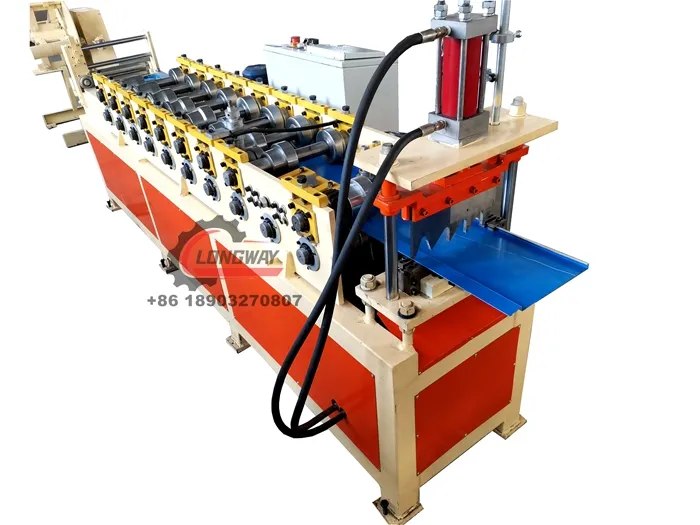Understanding the Expenses Involved in Roll Forming Machine Production and Suppliers
Understanding the Cost of Roll Forming Machines A Guide for Manufacturers
Roll forming machines are essential tools in the manufacturing industry, utilized for shaping metal into desired profiles. As various industries such as construction, automotive, and appliance manufacturing rely heavily on these machines, understanding their costs becomes crucial for manufacturers looking to optimize their equipment investment. This article will delve into the factors that influence the cost of roll forming machines and guide manufacturers in making informed decisions.
Factors Influencing Cost
1. Type of Machine The type of roll forming machine required will significantly affect costs. Standard machines, typically used for basic profiles, generally cost less than specialized models designed for complex shapes or heavy-duty applications. Manufacturers should assess their specific needs to determine what type of machine is most appropriate.
2. Production Capacity The production capacity of a roll forming machine, often measured in tons per hour, directly correlates with its cost. Higher capacity machines are generally more expensive due to their robust construction and advanced technology. Manufacturers with larger production needs must invest in higher-capacity machines, while smaller operations may opt for more cost-effective solutions.
3. Material Used The materials used in the construction of the machine also play a significant role in determining its cost. Higher quality materials can withstand the rigors of continuous operation, thereby enhancing durability and reducing long-term maintenance costs. Manufacturers must balance the initial investment with the expected lifespan and performance of the machine.
4. Customization Needs Custom roll forming machines, tailored to meet specific production requirements, often come with increased costs. Customization can range from unique tooling designs to special configurations. While these machines might have a higher upfront cost, they can lead to increased efficiency and productivity in the long run.
5. Technological Features Modern roll forming machines often come equipped with advanced technological features such as automated controls, programmable logic controllers (PLCs), and integration with computer-aided design (CAD) systems. While these features add to the initial cost of the machine, they can significantly enhance operational efficiency and precision, ultimately leading to cost savings over time.
cost of roll forming machine manufacturers

6. Brand and Manufacturer Reputation The manufacturer’s reputation can also impact pricing. Established brands with a history of reliability and strong customer support often charge more for their machines. However, this investment can yield dividends in terms of dependable performance and service support.
Costs and Budgeting
The cost of roll forming machines can vary dramatically, typically ranging from $30,000 to over $200,000 based on the aforementioned factors. Manufacturers should conduct a thorough budget analysis, incorporating not only the purchasing price but also installation, maintenance, and operation costs.
Quality vs. Cost
While it may be tempting to opt for the cheapest option, manufacturers must consider the long-term implications of their choice. Investing in high-quality roll forming machines may require a larger upfront cost but can lead to lower maintenance requirements and longer service life. Therefore, it is crucial to evaluate the total cost of ownership rather than focusing solely on initial price.
Conclusion
Ultimately, the cost of roll forming machines is influenced by various factors including type, capacity, materials, customization, technology, and manufacturer reputation. For manufacturers looking to invest in roll forming machinery, it is essential to conduct thorough research and analysis. By understanding these factors, manufacturers can make informed decisions that align with their production needs and budget constraints, ensuring they receive the best value for their investment in roll forming technology. Making a well-informed decision not only enhances productivity but also supports long-term operational success in the competitive manufacturing landscape.
-
Roof Panel Machines: Buying Guide, Types, and PricingNewsJul.04, 2025
-
Purlin Machines: Types, Features, and Pricing GuideNewsJul.04, 2025
-
Metal Embossing Machines: Types, Applications, and Buying GuideNewsJul.04, 2025
-
Gutter Machines: Features, Types, and Cost BreakdownNewsJul.04, 2025
-
Cut to Length Line: Overview, Equipment, and Buying GuideNewsJul.04, 2025
-
Auto Stacker: Features, Applications, and Cost BreakdownNewsJul.04, 2025
-
Top Drywall Profile Machine Models for SaleNewsJun.05, 2025








